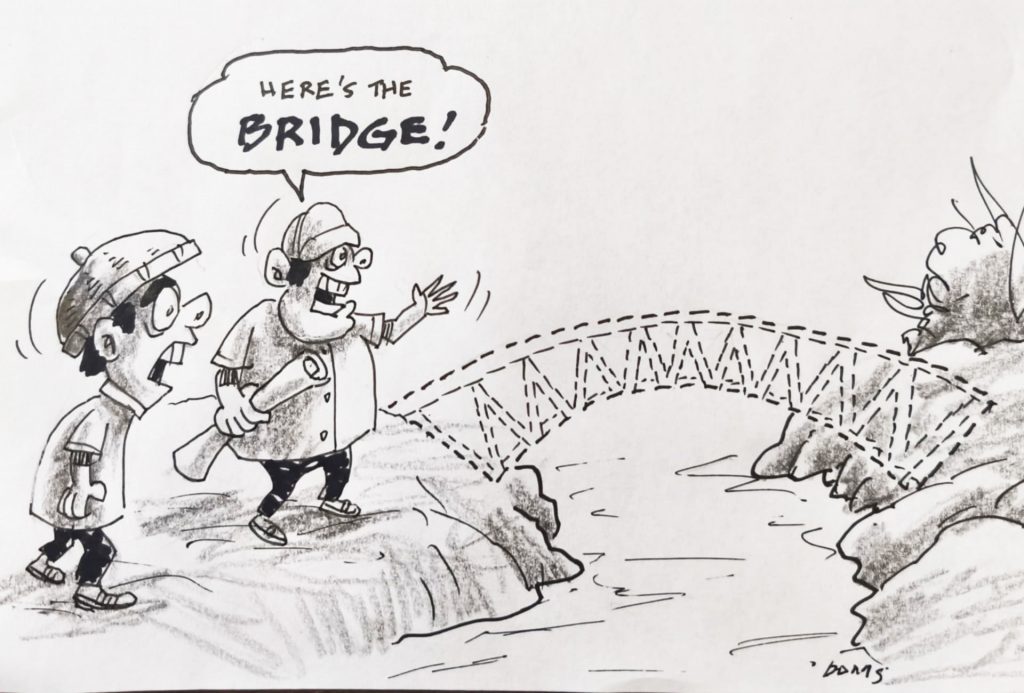Ghost projects are a national shame. They must be stopped now, before more public money is wasted and more lives are put at risk by substandard or nonexistent infrastructure. The country cannot continue to tolerate this plague of corruption.
All over the Philippines, one hears of roads that vanish into thin air, bridges that lead to nowhere, school buildings that are nothing but posts and hollow blocks, and flood-control projects that collapse after the first downpour. Many of these so-called projects exist only on paper, their funds already gone, their impact reduced to only figures in audit reports. While physically present, others are so poorly made that they crumble with little use, betraying both the promise of government service and the trust of taxpayers who foot the bill.
The rotten system that breeds ghost projects begins with officials slashing project funds through kickbacks and “SOPs.” From congressmen who endorse the projects to DPWH officials who approve and release the funds, the pipeline is riddled with plunderers. By the time the budget reaches the contractor, what is left is often not even half of what is needed. The inevitable result is cheap materials, haphazard construction, or no construction at all—hence the term “ghost project.” This is corruption institutionalized and legitimized by practice, perpetuated year after year, while the people suffer from unsafe, unreliable, and temporary public works.
Contractors themselves are not spared from blame, for many agree to the rotten terms just to get projects, knowing fully well they cannot deliver what is right. But the greater fault lies in a government structure that leaves them with little choice. If they refuse, they get blacklisted. If they comply, they become unwilling participants in an organized crime against the people. This vicious cycle drains public coffers and denies communities the quality roads, schools, hospitals, and facilities that should have been theirs by right. It is not just a question of corruption; it is a question of injustice to an entire nation.
Officials must be barred from having any share in project funds. No more kickbacks, no more SOPs, no more collusion between legislators and implementing agencies. Project budgets must go directly to construction, with independent watchdogs ensuring every peso is accounted for. Those who steal must face swift and certain punishment, not endless investigations that die with every election cycle. When project money is secured for its rightful purpose, the country can begin to build infrastructure that endures calamities and time itself.




